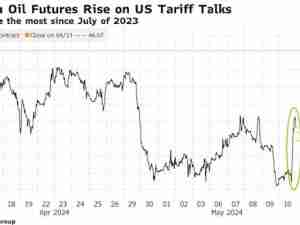DDGS, a by-product of ethanol production, has found a ready market in China, where growing demand for meat has fuelled a boom in animal feed production that is using up increasing volumes of corn and soy -- or, as a substitute, DDGS.
DDGS can provide the energy of corn or the protein of soymeal and has eased pressure on China's tight corn supplies.
China has become the world's largest importer of DDGS, importing 2.9 million tons in January-November, 542 percent more than in the same months of 2009, according to data from China's General Administration of Customs. Almost all was from the United States.
The value of Chinese imports, at $695 million in January-November, has risen even faster, up 650 percent.
"The investigation relates more to U.S. anti-dumping probes into Chinese exports than to DDGS. It will hurt China more if it costs more to import," said one industry official who promotes U.S. exports.
He said the imports this year had helped ease China's corn supply, replacing 1.5 million tons of corn consumption, mainly by feed mills in the south of China.
A commerce ministry official contacted by Reuters said if an initial conclusion proves there was dumping, suppliers will have to pay guarantees or an extra tariff to China before the final conclusion, which will be announced within one year.
Chinese buyers have reduced their imports since October following the rise of U.S. DDGS price, which is about 30 percent higher than domestic prices, traders said, with monthly volume about one third of previous months at about 100,000 tons.
"Some clients are quite worried even though we do not expect any big impact at present because U.S. prices are higher than domestic prices," said one trader with a U.S. supplier based in Shanghai.
China levies a 5 percent import tax on DDGs, and imports are also free of import quotas. China's Commerce Ministry said it would investigate how much damage the alleged dumping of DDGS had caused to China's own industry from January 1, 2007, to June 30, 2010. China produces about 3.5 million tons of DDGS per year.
Four Chinese companies, including Anhui BBCA Biochemical Co. Ltd. and Jilin Fuel Alcohol Co Ltd, requested the investigation into imported DDGS between July 1, 2009, and June 30, 2010, the ministry said in the statement.
U.S. DDGS production has boomed in the last five years, with an estimated 34.6 million tons in the 12 months to August 2011 compared to 10.4 million tons in 2005/2006, according to figures from the U.S. Department of Agriculture.
"The imported Chinese DDGS price, relative to domestic Chinese corn prices or imported corn prices, appears to be the primary driver of DDGS imports into China for marketing year 2009/10," the report said.
"The availability of shipping containers, providing a 'backhaul' opportunity, has facilitated the movement of this product relative to shipping in larger bulk ocean vessels."
A USDA report on DDGS published earlier this month said the potential for increased exports to China appeared promising
The report said overall U.S. exports of DDGS were expected to grow in future to 30 percent of total consumption in future, up from 25 percent in the 2009/2010 corn marketing year.
However, the proportion of U.S. DDGS exported was even higher in the mid-1990s, when volumes were far smaller. In 1995/1996, 59 percent of U.S. DDGS was exported, the USDA report said, without saying what the destinations were. (Reuters)








